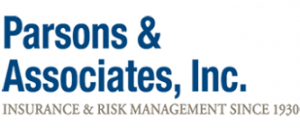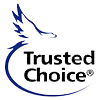S – Glossary of Terms
ALPHABETICAL LISTING
A | B | C | D | E | F | G | H | I | J | K | L | M | N | O | P | Q | R | S | T | U | V | W | X | Y | Z
Salvage: The recovery made by an insurance company by the sale of property which has been taken over from the insured as a part of loss settlement.
Schedule: A list of individual items covered by an insurance policy with their descriptions and values.
Self-Administration: A procedure where an employer maintains all records regarding the employees covered under a group insurance plan.
Self-Insurance: A form of risk financing through which a firm assumes all or a part of its own losses.
Settlement: A policy benefit of claim payment.
Settlement Options: The several ways, other than immediate payment in cash, which a policyholder or beneficiary may choose to have policy benefits paid out.
Short-Term Disability Income Insurance: A group or individual policy usually written to cover a short term disability (13-26 weeks).
Sickness Insurance: A form of health insurance providing benefits for loss resulting from illness or disease.
Special Damages: Compensation awarded for actual economic losses, such as medical expenses and lost wages. (See general damages)
Special Risk Insurance: Coverage for risks or hazards of a special or unusual nature.
Split Funding: The use of two or more funding agencies for the same pension plan. An arrangement whereby a portion of the contributions to the pension plan are paid to a life insurance company and the remainder of the contributions are invested through a corporate trustee, primarily in equities.
Standard Insurance: Insurance written on the basis of regular morbidity underwriting assumption used by an insurance company and issued at normal rates. Standard Markets: Insurance companies for which the vast majority of people qualify for insurance.
Standard Provision: The contract provisions required by state statutes until superseded by the uniform policy provision.
Standard Risk: An individual who, according to a company’s underwriting standards, is entitled to purchase insurance protection without extra rating or special restrictions.
State Fund: A fund set up by a state government to provide a specific line or lines of insurance, such as Workers Compensation..
State Insurance Department: A department of a state government whose duty is to regulate the business of insurance and give the public information on insurance.
Step-Rate Premium: A rating structure in which the premiums increase periodically at pre-determined times.
Stockholder: A person who owns shares of stock in a corporation.
Stock Insurance Company: A company in which the legal ownership and control is vested in the stockholders.
Stock Life Insurance Company: A life insurance company owned by stockholders who elect a board to direct the company’s management.
Stock Redemption Agreement: A buy-sell agreement within a corporation that involves the corporation buying back shares from a deceased stockholder.
Strict Liability: Usually dealing with property insurance, the liability that manufacturers and merchandisers may be subject to for defective products sold by them for damages, regardless of fault or negligence.
Subrogation: The process by which an insurance company seeks reimbursement from another company or person for a claim it has already paid.
Substandard Insurance: Insurance issued with an extra premium or special restriction to those persons who do not qualify for insurance at standard rates.
Substandard Risk: An individual, who, because of poor health history or physical limitations, does not measure up to the qualification of a standard risk.
Supplementary Contract: An agreement between a life insurance company and a policyholder or beneficiary by which the company retains the cash sum payable under an insurance policy and makes payments in accordance with the settlement option chosen.
Surety Bond: A bond guaranteeing that a principal will carry out the obligation for which they are bonded for. Most often this is issued to a contractor.
Surgical Expense Insurance: Health insurance policies, which provide benefits toward the physician’s or surgeon’s operating fees. Benefits may consist of scheduled amounts for each surgical procedure.
Surgical Schedule: A list of maximum amounts payable by the policy for various types of surgery, with the amount based on the severity of the operation.
Surplus: An amount by which the value of an insurer’s assets exceeds their liabilities.
Surplus Lines: A risk or a part of a risk for which there is no normal insurance market available, insurance written by non-admitted insurance company.
Syndicate:
A group of insurers or underwriters who join to insure property that may otherwise be to high of a hazard.
ALPHABETICAL LISTING
A | B | C | D | E | F | G | H | I | J | K | L | M | N | O | P | Q | R | S | T | U | V | W | X | Y | Z







Leave a Reply
Want to join the discussion?Feel free to contribute!